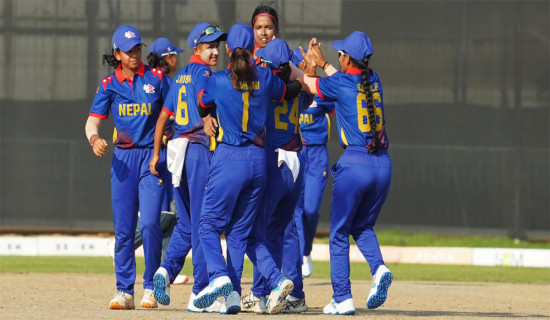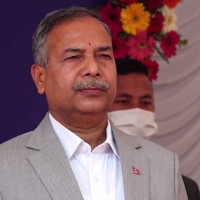- Thursday, 14 November 2024
Futuristic ceremony kicks off 19th Asian Games in Hangzhou
Hangzhou, Sept. 24: Chinese President Xi Jinping opened the 19th Asian Games in a colourful ceremony in Hangzhou on Saturday, launching a two-week sporting extravaganza that boasts more athletes than the Olympics.
After being delayed by a year because of China’s now-abandoned zero-Covid policy, more than 12,000 competitors from 45 nations and territories will battle it out in 40 sports.
In front of Syrian President Bashar al-Assad and other visiting leaders, Xi officially opened the Games at the 80,000-capacity Hangzhou Olympic stadium, also known as “the Big Lotus”.
Xi was given a rapturous reception by spectators waving mini Chinese flags.
International Olympic Committee president Thomas Bach was also among the dignitaries. Leaders from Cambodia, Kuwait and Nepal, among others, had all been expected to attend.
“Finally we can gather for the 19th Asian Games,” Raja Randhir Singh, acting president of the Olympic Council of Asia, told the crowd to more cheers.
“The one-year postponement was unprecedented in OCA history,”
he added.
The theme of the ceremony was water and it also celebrated Hangzhou’s ancient history and landscape, while giving a nod to the city’s reputation as the unofficial home of China’s
tech industry.
A “digital torch bearer” strode into the stadium and was projected onto a large screen behind the Games cauldron at the climax.
“I feel very happy and excited,” a 35-year-old woman spectator surnamed Zhang said.
“I feel it’s a great honour for the city.”
High-tech ceremony
The opening ceremony of the Asian Games on Saturday in China offered all the staples of a major international sports event.
Dignitaries greeted General Secretary Xi Jinping, fans packed the 80,000-seat Olympic Sports Center Stadium in Hangzhou to capacity, and many of the 12,417 participants from 45 nations and territories paraded to officially open the two-week show.
By comparison, next year’s Paris Olympics will field about 10,500 competitors.
One big thing, however, was missing: real fireworks, the exploding kind that smell of power and burnt fuses. Instead, the high-tech games — billed of course as “green games” — offered electronic flash, three-D animations, and a virtual torchbearer.
Xi was greeted by wild cheers when he appeared, and fans were handed LED star lights, adding sparkle to the stands when the lights dimmed and eight well-polished soldiers arrived carrying the national flag above their heads.
Delayed for a year by the pandemic, the Asian Games are China’s largest sports event since the country scrapped its zero-COVID policy early in the year.
The 2022 Beijing Winter Olympics were held in a COVID bubble. The 2008 Summer Olympics marked China’s rise as a world power. These games serve as a promotional event for Hangzhou, the eastern metropolis of 8 million that seeks a larger stage, partly lost in the shadow on nearby Shanghai.
“Through the window of Hangzhou Asian Games, people around the world will see a trustable, loveable, and respectable China in its new era,” Xinhua, the official news agency, said in an editorial, echoing Xi’s call to tell China’s story.
ESports will make its debut as a medal event at the Games, in what is seen as a step towards inclusion in the Olympics.
There will also be regional specialities including dragon boat racing, the Chinese martial art wushu and kabaddi.
Nine sports -- among them boxing, break dancing and tennis -- will serve as Asia qualifiers for next year’s Paris Olympics.
Add to this a long list of what organizers call “mind sports” from bridge to chess to xiangqi (Chinese chess).
Of course, there are the old standbys seen in every Olympics like track and field, swimming, or volleyball. Nine sports will offer qualification spots for the Olympics — archery, artistic swimming, boxing, breaking, hockey, modern pentathlon, sailing, tennis, and water polo.
Many of the 481 events offer a chance for smaller delegations to win medals, which is often impossible at the Olympics. China won almost 300 medals in the Asian Games five years ago and is sure to dominate again followed by Japan and South Korea.
North Korea is on hand, so are female athletes representing Afghanistan, and Taiwan — the democratic island claimed by China as a breakaway province — always fields a strong team.
The Afghan team arrived, including women, and marching under the non-Taliban flag. (AP/AFP)
















